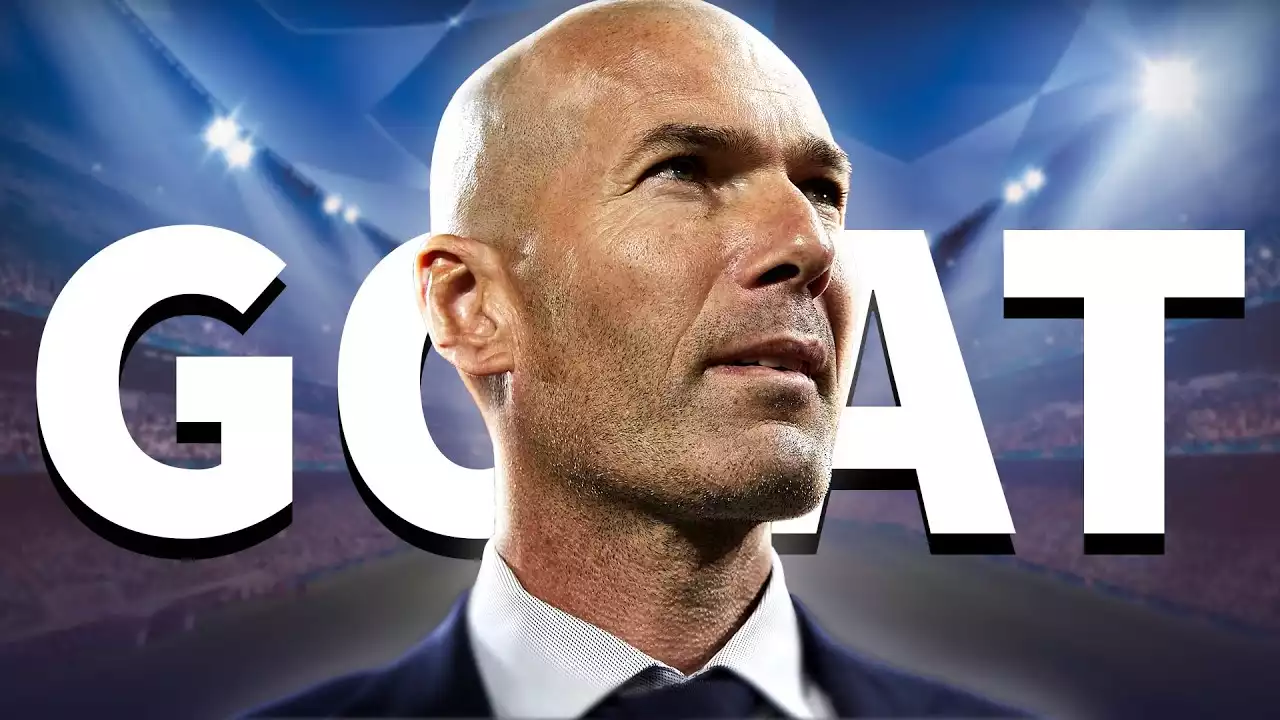Introduction
Winning the FIFA Club World Cup is a dream come true for any football manager. Not only does it solidify their place in the history books, but it also brings numerous benefits to their career and reputation. In this article, we will explore five key advantages that winning the prestigious tournament can have for managers.
The Significance of Winning the FIFA Club World Cup
Winning the FIFA Club World Cup is a significant achievement that sets managers apart from their peers. It showcases their ability to lead a team to victory on a global stage, earning them respect and admiration from fellow professionals and fans alike. The tournament brings together the best clubs from each continent, making it a highly competitive and challenging event. A manager who can navigate their team to triumph in this intense setting demonstrates their tactical prowess and leadership skills.
Moreover, winning the Club World Cup establishes a manager's legacy in the football community. Their name becomes forever associated with the triumph, and they are remembered as a key figure in their team's success. This recognition solidifies their place in football history and can serve as a springboard for future achievements.
Increased Global Recognition and Reputation
One of the most immediate benefits of winning the FIFA Club World Cup is the enhanced credibility and status it brings to a manager. Their achievement is acknowledged not only by fans and players but also by fellow professionals, including coaches and club owners. This newfound recognition opens doors to new and exciting opportunities. Managers may attract attention from bigger clubs or even national teams, leading to potential career advancements and increased financial rewards.
A Club World Cup victory can also boost a manager's reputation beyond their own country. The tournament garners global attention, providing managers with international exposure. This exposure can increase their marketability and make them attractive candidates for clubs or national teams seeking a proven winner. As a result, winning the FIFA Club World Cup can significantly propel a manager's career to new heights.
Financial Rewards and Sponsorship Opportunities
In addition to the prestige and recognition, winning the FIFA Club World Cup can bring substantial financial rewards to a manager. The success and global exposure generated by winning the tournament can attract lucrative sponsorship deals and endorsements. Companies and brands are eager to associate themselves with winners, and managers can leverage their newfound status to secure profitable partnerships.
Moreover, winning the Club World Cup often leads to increased revenue for the manager's club. Prize money, ticket sales, merchandise, and sponsorship deals all contribute to a club's financial success. As a result, managers who bring home the trophy can negotiate better contracts and secure larger budgets for future seasons. This financial stability allows managers to build stronger teams and invest in top talent, which ultimately increases their chances of future success.
Enhanced Player Recruitment and Retention
Winning the FIFA Club World Cup not only attracts attention from sponsors and club owners but also entices top talent to join a manager's team. Players are often drawn to successful clubs and managers who have proven their ability to win on the global stage. The desire to be part of a winning culture and compete at the highest level can be a significant factor in a player's decision to join a particular club.
Furthermore, winning the Club World Cup can help managers retain their star players. Success breeds loyalty, and players are more likely to commit their futures to a club that has achieved greatness. The satisfaction and pride that come with winning the tournament create a positive environment that fosters player loyalty and commitment. As a result, managers who win the FIFA Club World Cup can build a strong and cohesive team capable of sustained success.
Boost in Team Morale and Confidence
A Club World Cup victory can have a profound impact on the morale and confidence of a manager's team. Winning such a prestigious tournament instills a sense of pride and accomplishment among players, creating a positive atmosphere within the squad. The belief and confidence gained from winning on the global stage can carry over into future competitions, inspiring players to achieve even greater results.
Moreover, winning the Club World Cup can reinforce a manager's authority and leadership within the team. Players respect and trust managers who can guide them to success, and winning the tournament solidifies a manager's position as a capable and effective leader. The collective belief and trust within the team can lead to improved performances and a winning mentality that extends beyond the Club World Cup.
Opportunities for Managerial Growth and Career Advancement
Winning the FIFA Club World Cup provides managers with a unique and invaluable experience. They have the chance to showcase their tactical prowess against the best teams in the world, further enhancing their reputation. The tournament exposes managers to different styles of play, innovative coaching techniques, and high-pressure situations, all of which contribute to their growth and development as professionals.
Furthermore, winning the Club World Cup can open doors to managerial opportunities in other leagues or even national teams. Managers who have proven their ability to excel on the global stage become attractive candidates for clubs or national associations seeking experienced and successful leaders. The skills and knowledge gained from winning the tournament can be applied to new challenges, broadening a manager's horizons and increasing their chances of career advancement.
Case Studies of Successful Managers Who Won the FIFA Club World Cup
To illustrate the impact of winning the FIFA Club World Cup on a manager's career, let's examine a few case studies of successful managers who achieved this feat.
- Pep Guardiola: The Spanish manager led Barcelona to victory in the 2009 and 2011 editions of the Club World Cup. These triumphs solidified Guardiola's status as one of the best coaches in the world and attracted attention from top European clubs. He went on to achieve further success with Bayern Munich and Manchester City, cementing his place among the managerial elite.
- Zinedine Zidane: The former French international won the Club World Cup three times as the manager of Real Madrid in 2016, 2017, and 2018. These victories elevated Zidane's reputation as a manager and showcased his ability to handle the pressure of leading a star-studded team to global success. Zidane's success with Real Madrid ultimately led to his appointment as the manager of the French national team.
- Jurgen Klopp: The German manager achieved Club World Cup glory with Liverpool in 2019. This triumph was a major milestone in Klopp's managerial career and further solidified his status as one of the best coaches in the world. Klopp's success with Liverpool has since continued, with the club winning the Premier League and UEFA Champions League under his guidance.
How Winning the FIFA Club World Cup Impacts the Future of a Manager's Career
Winning the FIFA Club World Cup can have a lasting impact on a manager's career trajectory. As discussed earlier, the benefits of winning the prestigious tournament range from increased credibility and career opportunities to enhanced confidence and the ability to attract top talent. These advantages create a positive feedback loop that can propel a manager's career to new heights.
Managers who win the Club World Cup often find themselves in high demand from clubs and national teams seeking their expertise. The recognition and reputation gained from winning the tournament make them attractive candidates for prestigious positions. They become sought-after figures in the football world, with clubs and national associations eager to secure their services.
Additionally, winning the Club World Cup provides managers with a unique sense of accomplishment and fulfillment. The memories and experiences gained from leading a team to triumph on the global stage stay with them throughout their careers. These experiences shape their managerial approach, influencing their decision-making and tactics in future endeavors.










